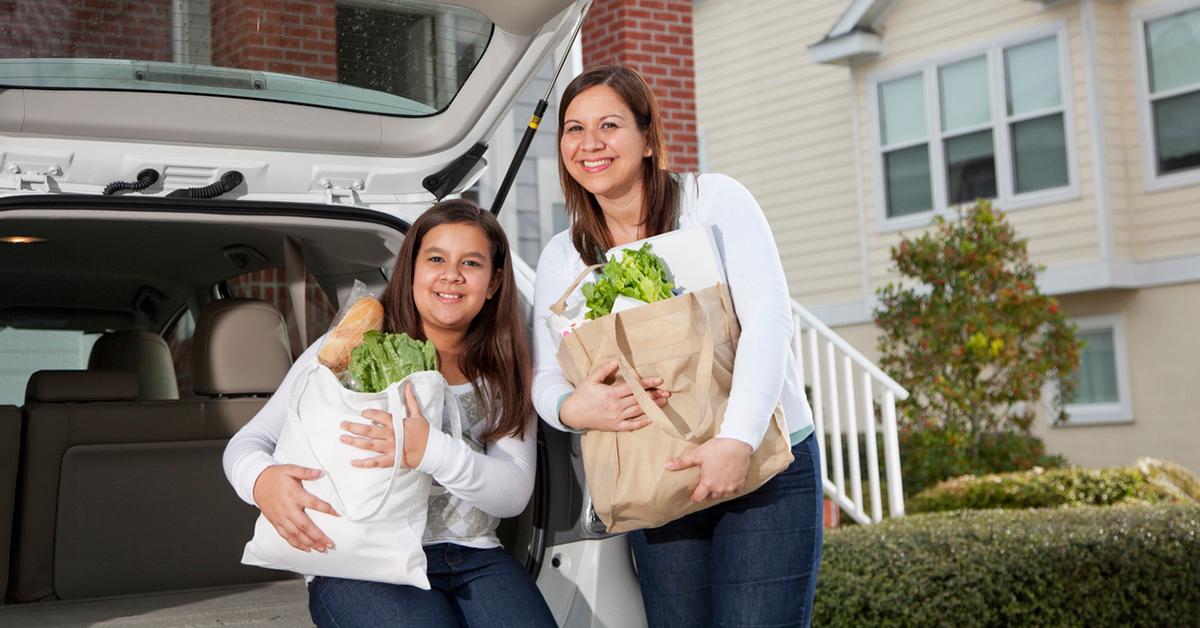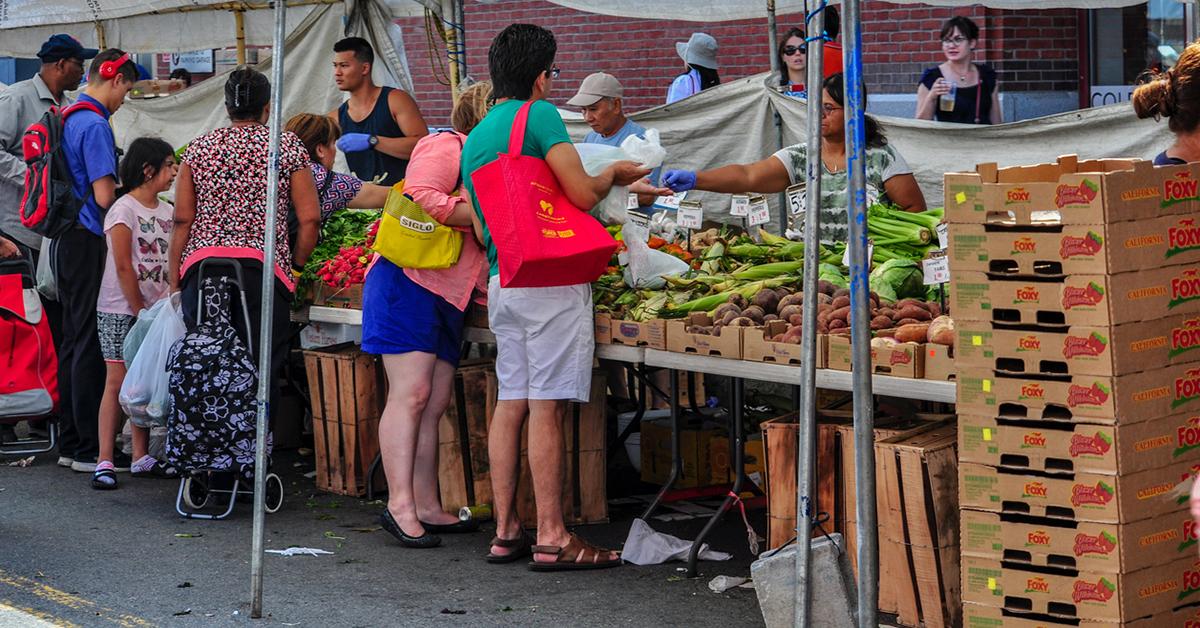6 New Year’s Resolutions That Will Help You Help the Planet
These New Year’s resolutions will help you make a change — for not only you, but also the planet.
Updated Nov. 19 2020, 9:39 p.m. ET

New Year’s resolutions are — more often than not — terrifying. They hold you accountable, push you out of your comfort zone, and force you to reevaluate something about your life.
While most of the popular, cliché New Year’s resolutions are based in personal betterment, the New Year is also the perfect occasion to think about ways you can have a positive impact on the planet.
Keep reading to check out six small changes you can make in your life to help the environment!
Invest in a Reusable Shopping Bag 

Assuming you haven’t already, that is. There’s a reason why several countries around the world and cities in the US are banning the use of single-use plastic shopping bags: Research estimates Americans use around 100 billion plastic bags every year, and they are not easily recycled.
Because they aren’t easily recycled, they end up landfills — but often don’t stay there; since they’re so lightweight, they’re often lifted by the wind and end up polluting the “outside,” interfering with our water sources, trees, and animal habitats. And the ones that stay in the landfill are problematic too, of course: According to research out of the UK, it takes 500 years for a plastic bag to decay once it's in a landfill.
Buying a reusable shopping bag (or several, based on your needs) is a low-cost, one-time purchase that could have a big impact on cutting down on your plastic consumption.
While You’re At It, Embrace As Many Reusable Products As Possible 

Using reusable items can start at your shopping bag, but it definitely doesn’t have to end there! While you have some extra cash from the holidays, consider buying a reusable straw, reusable coffee cup, reusable water bottle, etc.
Many companies have taken to banning plastic straws because of their negative impact on the ocean and its inhabitants; thankfully, there are plenty of alternatives such as Final Straw, which is a collapsable, reusable straw that makes it easy to use on-the-go.
The statistics on styrofoam and plastic water bottles are undeniable as well; to start, humans buy a million water bottles a minute, and 91 percent of those water bottles aren’t recycled. Styrofoam also isn't recyclable or biodegradable, and could stay in landfills for 500 years according to some estimates.
Making a small investment in a reusable coffee tumbler to bring to your favorite coffee shop or a water bottle to fill up wherever you go could be a big investment in our planet’s future.
Go Paperless When You Can 

We live in a digital world — but there are still some things that inexplicably still use paper, though it's totally unnecessary in many cases. And Americans use a lot of paper: According to research conducted by the University of Southern Indiana, Americans use about 85 million tons of paper a year, which comes out to about 680 pounds per person or, in other words, about seven trees worth of paper, wood, and other products per person — and about 2 billion trees per year.
Fortunately, there are many places where you can opt out of paper — whether it’s your credit card bill or receipts at your favorite store. Going paperless can help with organization (no one misplacing your mail or accidentally tossing your receipt!), but can also help with the environment.
UK-based company DocuSign reports that the paper industry is the fifth largest energy consumer in the world. Cutting back on your paper consumption in order to go digital not only helps save trees, but also cuts back on pollution and water consumption associated with producing and transporting paper.
Also considering consuming your favorite print media — like your newspaper — online as well. Per USI’s findings, 500,000 trees must be cut down to produce each week’s Sunday’s newspapers.
Explore Going Green With Your Commute 

Vehicles have a major impact on our environment — with the EPA reporting that 27 percent of greenhouse gas emissions come from transportation; according to their findings, a typical passenger vehicle emits 4.6 metric tons of carbon dioxide annually.
Consider biking to work, which will not only clear up congestion in major cities and commuter areas, but it will also potentially benefit your health. Research found that in cities, cyclists are exposed to less air pollution than other commuters (in part because of the short commute time).
While public transportation and carpooling are other, “greener” commuting options than traveling in a car by yourself, there are still health risks associated with spending a long time in cars (and Americans are spending more time in their cars commuting than ever — average commuting times have increased by 20 percent since the ‘80s). Leading climate change expert Professor Sir David King explained to The Guardian that even in “cleaner” vehicles, you’re exposed to emissions and dangerous levels of air pollution. As he put it, “You may be driving a cleaner vehicle but your children are sitting in a box collecting toxic gases from all the vehicles around you.”
Shop Local When You Can 

While there’s plenty of convenience associated with shopping at big box stores, shopping local is beneficial for the environment and your community.
By thinking globally and acting locally, you’ll help curb the energy and resources necessary for transportation and packaging at big box stores. There are some personal benefits, too, as shopping at local grocery stores and farmers markets, it's likely you’ll get fresher produce.
On a smaller scale, shopping locally also means you’ll help your community by creating jobs and investing money in your community.
Give Up Meat (At Least on Mondays) 

Joseph Poore of the University of Oxford studied the effect of farming on the planet, and came to the conclusion that giving up meat and dairy could be the best thing you could do for the planet; this is because of the air and water pollution farming creates, the emissions caused by the transportation of meat, and the water and land consumption needed for these farms. Not to mention, research in 2011 found that 119.1 million tons of methane were produced globally by livestock passing gas.
“A vegan diet is probably the single biggest way to reduce your impact on planet Earth, not just greenhouse gases, but global acidification, eutrophication, land use, and water use,” Poore explained. “It is far bigger than cutting down on your flights or buying an electric car,” he added, because those actions only reduce greenhouse gas emissions.
“Agriculture is a sector that spans all the multitude of environmental problems,” he continued. “Really it is animal products that are responsible for so much of this. Avoiding consumption of animal products delivers far better environmental benefits than trying to purchase sustainable meat and dairy.”
If going vegan full-time is not feasible for you, start slow by embracing Meatless Mondays or cutting back on your meat and dairy consumption.